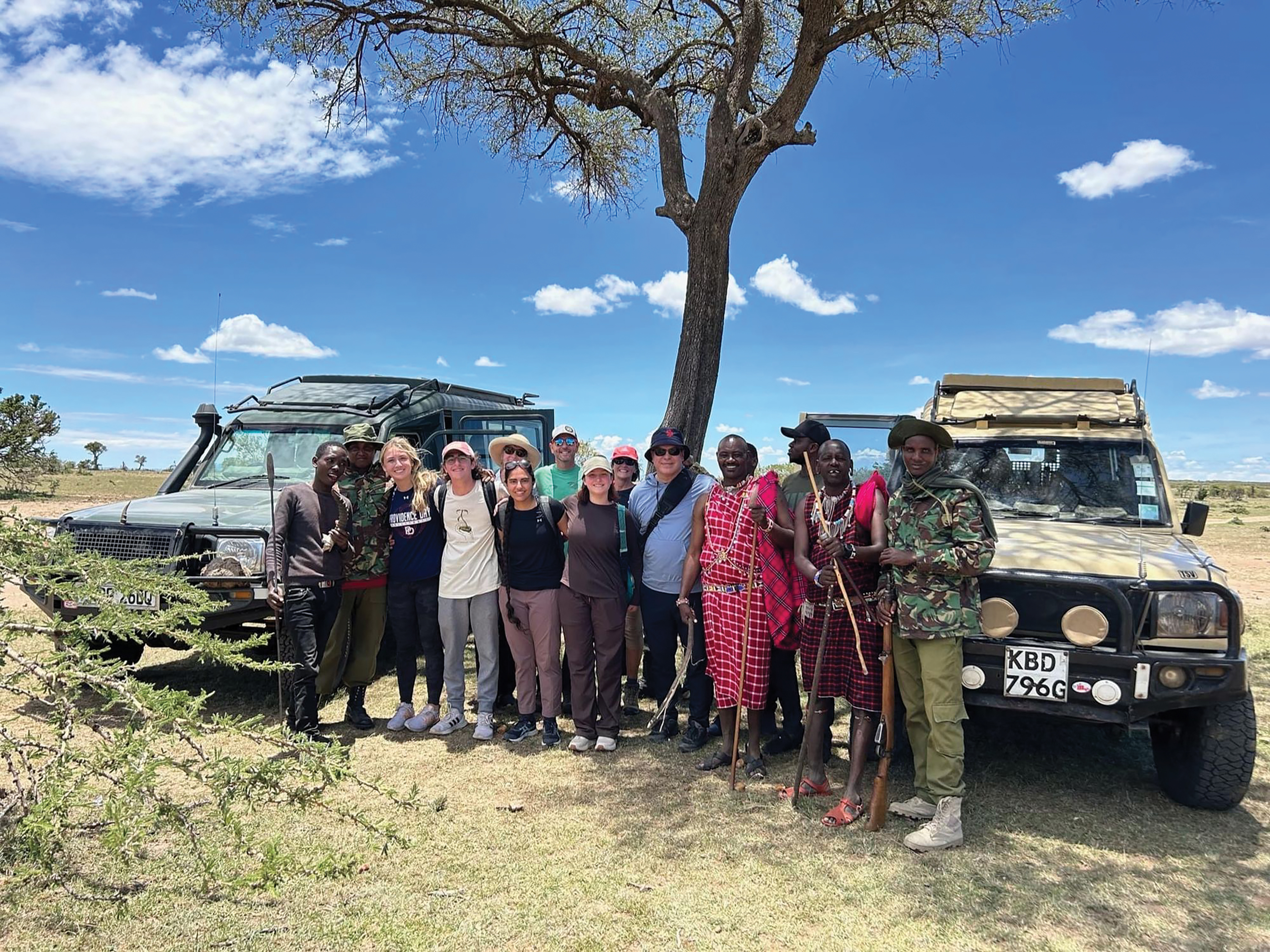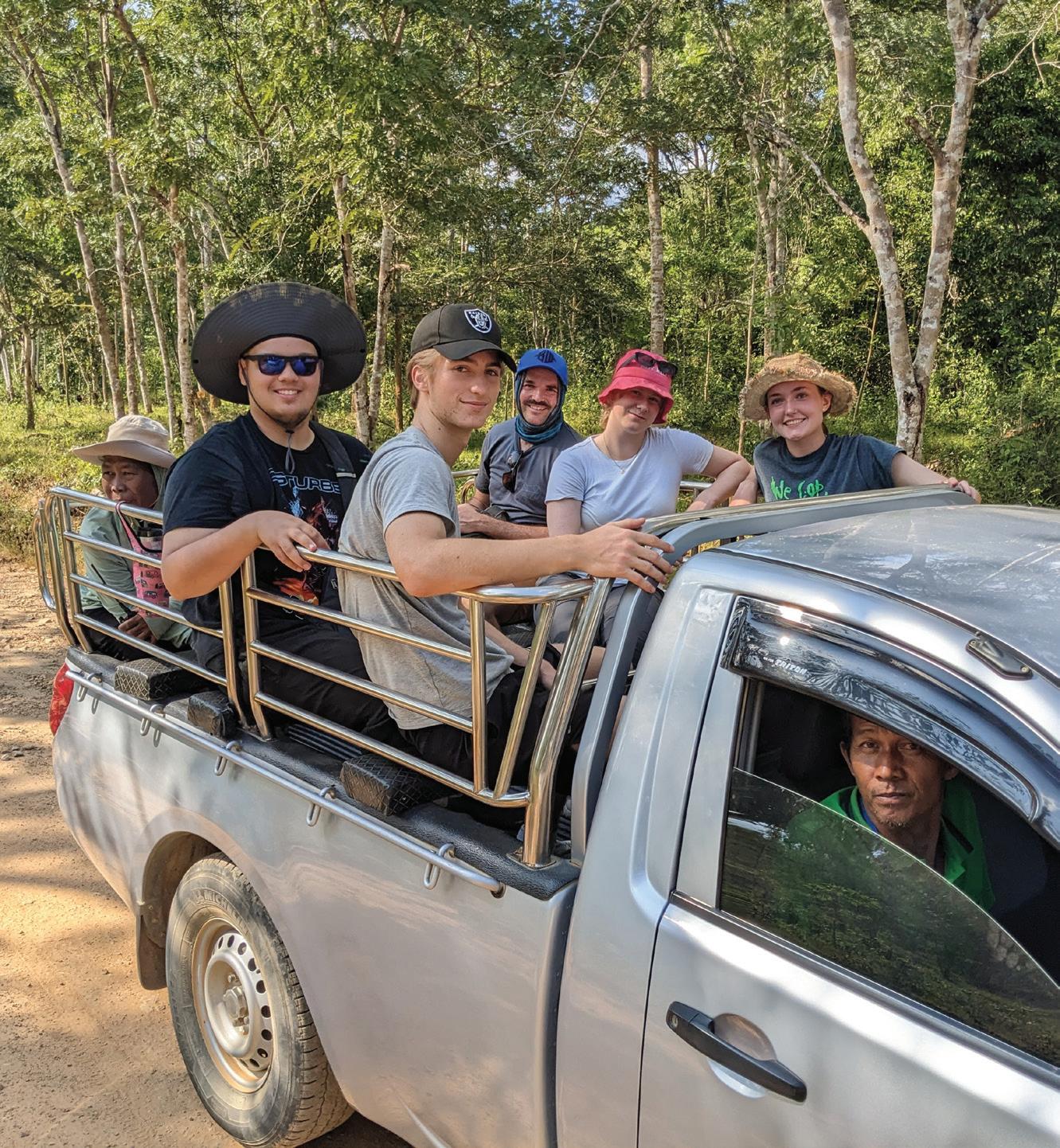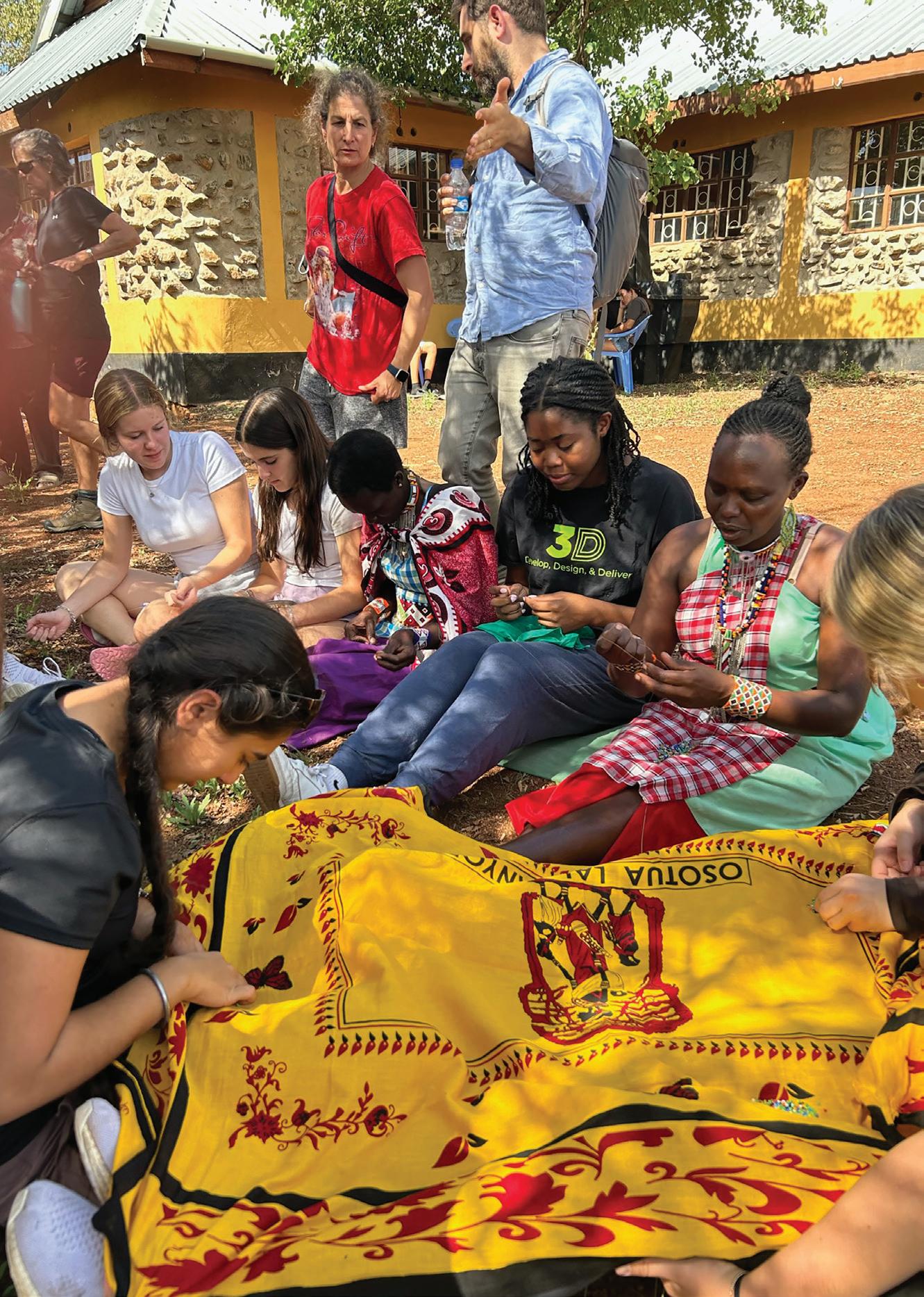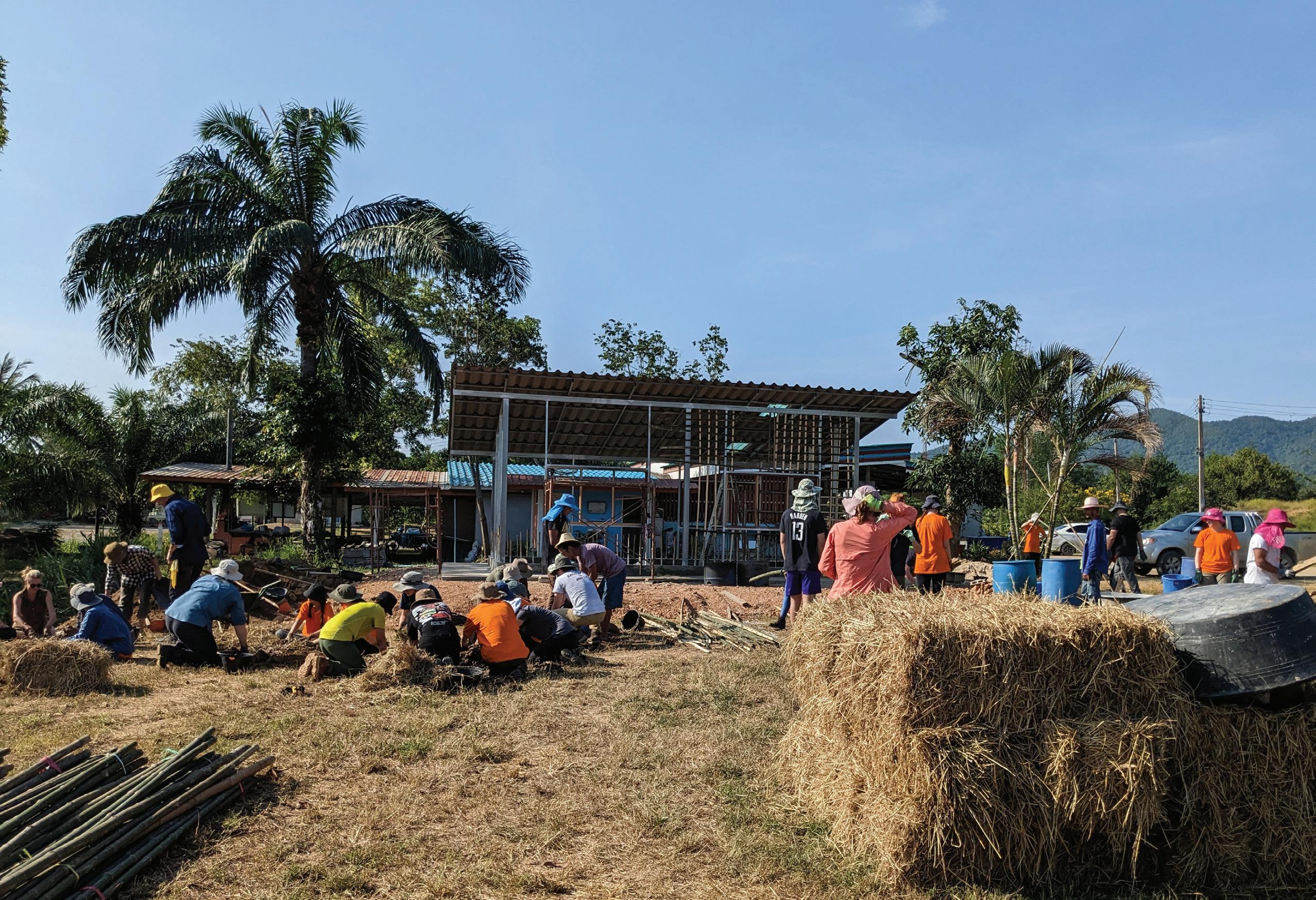
6 minute read
Beyond the Border
Global education initiatives at Providence Day extend beyond travel — encompassing deliberate preparation, intercultural learning, and impactful experiences, shaping students into empathetic, informed, and empowered global citizens.
Written by Anna Maria Della Costa.
Jessica Williams is a global citizen. She’s been to China, Taiwan and Scotland.
In October, she accompanied a handful of teens to Africa. The Director of Global Programs at Providence Day knows each trip means more than just traveling to another continent.
“At its highest, global education is both an inner and an outer journey that has the capacity to raise human consciousness,” Ms. Williams says, adding the inner journey is a time of reflection. The outer journey provides experiences and an opportunity to open hearts and minds.
“How do we want to ‘be’ in this world? As we travel, our hearts sometimes hurt from what we witness. In that space, we have a choice. Do we turn away, or do we turn toward? Our world needs us to turn toward one another.”
At Providence Day, Williams and the Global Education Office intentionally create experiences for students that foster intercultural learning inside and outside the classroom. They purposefully develop opportunities for students to become empathetic, informed, and empowered global citizens.
“A lot of thought and work go into in-depth preparation,” Williams says. “We want students to understand their own identity and be aware of their own culture. What does it mean to be a United States citizen? Then, we look into the culture of where they’re going. It’s a very intentional design.”
Providence Day is also a member of Round Square, an internationally diverse network of 200 schools in 50 countries on six continents. Round Square schools connect and collaborate to offer conferences, the volunteer Big Build, and exchange experiences that develop global competence, character, and confidence.
“Round Square's sustainable and community-centered approach to service is key,” Williams says. “Students have the opportunity to exist technology-free while serving, reflecting, and learning with peers from around the world, and the experience is much richer.”
The inner journey
Marly Celebron-Brown, a junior at Providence Day, was part of the group that attended the Round Square International Conference in Nairobi, Kenya. They participated in “The New Africa,” a week-long endeavor that explored how Africa has evolved in the 21st century yet clings to its traditions and ties with nature.

They also developed an appreciation for differences.
“They live in simplicity,” Marly says of the people in Kenya. “They don’t have to be doing something or spending a lot of money. Their happiness comes from being with each other.”
Williams says trips give students the opportunity to reflect internally. In Africa, they learned to “be aware of your presence. Part of the inner journey.”
Even better, the group will share with Providence Day Transitional Kindergarten students about the journey.
“We’re not just traveling for ourselves,” Williams says, “but traveling for others, too. We’re not only breathing for ourselves, but we breathe for others.”
A shift
Suzanne Clements is the assistant director of global programs at Providence Day. She says a large part of the global journey is when students come home.
“They bring back that awareness they gained,” Clements says. “They come back and embrace that experience. They have lunch discussions. They make presentations. That’s what makes our day. It’s wonderful when we see the students come back impacted and wanting to share.”

Williams adds: “The power of knowing yourself, the power of preparation, and the power of expectations - it empowers students. That piece is key.”
When Providence Day students attended the Round Square Big Build in Thailand in December, they came back with a different perspective. Big Builds are international service projects that unite participants from member schools worldwide.
“We couldn’t have any phones, no electronics, so it was easier to connect,” says Ella Mellone, who worked with teams of students in Thailand on the construction of a community research center, park ranger huts, lookout towers, hornbill nest boxes, and beehive fences. “When I got home, there was a little shift (because of the experience in Thailand.) I didn’t care about everything I was getting for Christmas. I put more emphasis on relationships this time than material things.”
Kristin Santo, a Middle School English teacher and learning coach, was independently accepted as a Big Build leader in Thailand.
“I was reminded of the importance of authentic experiences and relationships for self-growth,” Santo says. “I was inspired by watching 59 students from fourteen countries work and play together in an organic, purposeful, and pure way. It was worthwhile to see the confidence grow in each student, whether that was seeing them emerge as leaders or seeing them master a new skill set. It is important for our students and children to see us, at all ages, trying new things and modeling what it looks like to be lifelong learners.”

Global education at Providence Day is hardly limited to trips - plenty of opportunities are available on campus.
“We try to create experiences that expose students to global programming without them going abroad,” Clements says, “Students don’t even have to get on an airplane. We’ve had instances of students hearing a global speaker and being so moved they ask, ‘What can we do?’”
‘Building their skillset, mindset and heart-set’
During this school year, students heard from an Australian basketball team, got a glimpse of Japan’s culture, and attended an in-person lunch with Marie Yovanovitch, former United States Ambassador to Ukraine, among many more.
A group of middle school students spent a portion of their Valentine’s Day at a virtual event with students from around the world to talk about school lunches. Providence Day’s Middle School Postcard included students from Bangladesh, Canada, Colombia, India, Kenya, Namibia, South Africa, Switzerland, and the United Kingdom.
“We addressed issues like the nutritional values of school lunches and how they impact students,” says Alex Duvel, a Providence Day eighth-grader who helped plan the Postcard event. “We talked about lunchtime social dynamics that take place in the dining hall. It was important because it allowed students to connect with each other on a global scale and address subjects that are also happening locally.
“We found many similarities and learned new things about other students and how their schools work.”
The event gave Alex and her peers the experience of planning a significant event, facilitating a meeting, coming up with an agenda, and being a leader - inner and outer journeys wrapped up in a postcard.
“The purpose [is for students to] connect with peers through intercultural dialogue,” Williams says. “But they’re also picking a topic, leading discussion questions - it’s very student-driven. We're helping them begin to build their skillset, mindset, and hearts.










